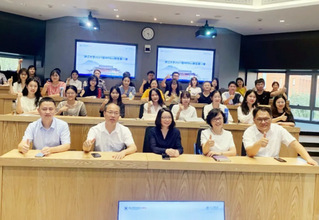题目:Managing Perishable Inventory Systems with Positive Lead Times: Inventory Position vs. Projected Inventory Level
时间:4月22日10:00-11:00
地点:yl23411永利A723
主讲人:龚锡挺 教授,香港中文大学
主持人:袁泉 长聘副教授,浙江大学
主讲人简介:

龚锡挺现任香港中文大学商学院决策、营运与科技学系教授。其主要研究领域为运营与供应链管理,包括随机库存管理、固定寿命易逝品库存管理、回收再制造生产库存管理等。他在Management Science、Operations Research、Production and Operations Management等国际顶级学术期刊发表了十多篇论文、主持了多项由政府或企业资助的科研项目,包括国家自然科学基金2024年杰出青年科学基金项目。他目前担任国际学术期刊Naval Research Logistics和Operations Research Letters的副主编。
讲座摘要:We consider periodic-review perishable inventory systems with a fixed product lifetime, positive replenishment lead times and a general issuance policy under the average-cost criterion. The optimal replenishment policy for these systems is notoriously complex and intractable due to the curse of dimensionality. To address this, we propose a class of projected inventory level (PIL) policies that maintain a constant expected on-hand inventory level at the time of each order’s arrival. The best PIL policy is asymptotically optimal with large unit penalty cost under a broad class of unbounded demand distributions. When the demand distribution is bounded, it may underperform the best base-stock policy (which maintains a constant inventory position) under the FIFO (first-in-first-out) issuance policy while arbitrarily outperforming the latter under the LIFO (last-in-first-out) issuance policy. Additionally, it is asymptotically optimal with large demand population sizes. To facilitate computation, we also propose a class of approximate PIL (APIL) policies and extend most of our results to APIL policies. Numerically, both PIL and APIL policies perform close to optimal and significantly better than the base-stock policy. This is joint work with Jinzhi Bu (HK PolyU) and Huanyu Yin (CUHK).





